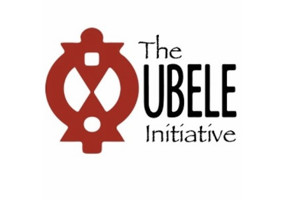Three social investment organisations have promised to change their programmes after new research highlighted the barriers faced by minoritised ethnic communities.
Access – The Foundation for Social Investment (Access), Social Investment Business (SIB), and Power to Change, commissioned a report, Minoritised Ethnic Community and Social Enterprises, to understand how well they are supporting organisations from minoritised ethnic communities.
They admit that the findings show that they need to do more and have set out five commitments, which includes making changes to funding programmes.
In a joint foreword the CEOs said: “We are encouraged that it finds that we have made some progress in doing so [supporting organisations], particularly in the area of enterprise development.
“But we recognise that overall, the picture that emerges from this research is one that calls for significant improvement. This report provides us with both a platform for change and also a baseline against which we can measure our progress; and by working together, we can better hold each other to account.”
Structural barriers
The report was written by Dr Leandro Sepulveda and Synnøve Rabbevåg at the Centre for Enterprise and Economic Development Research (CEEDR) at Middlesex University. Sado Jirde, CEO of the Black South West Network, and Yvonne Field, executive director at the Ubele Initiative, acted as advisors to the project.
Researchers carried out a literature review and detailed analysis survey monitoring data for 10 funding programmes.
It found that structural barriers mean that “minoritised ethnic communities are scarcely represented” and that existing support does not “recognise their unique and varied needs”.
This means “there is an over-reliance on informal personal, family and community networks”.
Poor access to support
The report notes that the quality of the data collected to date has been poor.
“In general, DEI data has not been as routinely collected at the application stage as it is at the awarded stage. Nor has DEI data been as routinely collected about values (i.e. how much money flows to ‘BAME’-led organisations) as it has for numbers (i.e. the count of how many ‘BAME’-led organisations are in receipt of grants/ investment),” the report says.
Where data was available, it found that general programmes support a lower number of BAME-led organisations compared to the proportion represented in the UK as a whole. Those that were funded also received a lower value grant or loan.
Recommendations
The report recommends social investors do more to work in partnership with minoritised ethnic communities to co-design programmes, reduce the complexities when applying for social investment, and collect better and comparable data.
Social investors were also urged to change the language they use because the term “BAME” is problematic because it excludes white minorities such as Gypsy, Roma and Traveller or Irish Heritage groups. It also focuses on the idea of “otherness” and can imply that all groups have the same issues.
“Funder and support providers should consider removing terms such as ‘BAME’ in application forms and elsewhere. Instead they should use the terms ‘minoritised ethnicity-led and supporting’,” the report explains.
Five commitments
Access, SIB and Power to Change have have now committed to gathering better data about who applies to their programmes and changing how they award grants and loans to engage new partners.
The five commitments are:
- Changing incentives in long-standing programmes to reward partners who can consistently demonstrate better reach to minoritised ethnic communities, and engaging new partners who we have not worked with before.
- Developing new programmes which specifically support minoritised ethnic communities in collaboration with appropriate partners and networks; and changing existing ones too.
- Changing investment policies to place diversity, equity and inclusion on an equal footing with financial performance and social impact.
- Using their improved data to understand the points in the process where specific barriers exist for minoritised ethnic communities and removing those barriers.
- Continuing to address power dynamics: reviewing their own governance and decision-making processes and structures, and those of their delivery partners.
‘Holding ourselves accountable’
Social investors said they would use the report to help them improve and hold each other to account.
Seb Elsworth, chief executive of Access, said the report’s findings will “form the baseline against which our future performance on equality, diversity and inclusion will be assessed”.
He added: “Access is committed to making social enterprise support and social investment truly inclusive and fair. We will deliver this through consultation and engagement with minoritised ethnic and excluded communities, and co-production in active partnerships with those under-represented communities.”
Vidhya Alakeson, chief executive at Power to Change, said: “To move forward towards equity, we are educating our staff team about marginalisation and inequity, we are listening to communities experiencing these unequal impacts and integrating their advice into our processes, and designing activities to support those in most need.”
Nick Temple, chief executive of SIB, said: “We are committed to making greater progress in our support for minoritised ethnic communities; so we will use this report to both drive forward action with our partners and also to hold each other to account.”
Related articles












